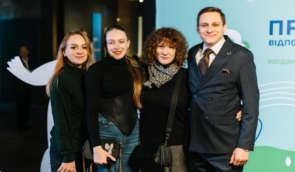Stories of victims of enforced disappearances were heard at the PACE session in Strasbourg
A side event “Victims of Enforced Disappearances: how the Russian Federation captures Ukrainian civilians and violates international law” was held during the PACE’s session on April 18. It was organized by the Ukrainian delegation to PACE and gathered international and Ukrainian officials and non-governmental experts. Participants discussed the large-scale practice of abduction of Ukrainian civilians by the Russian Federation, personal stories of victims and their relatives, as well as proposals on what can be done.
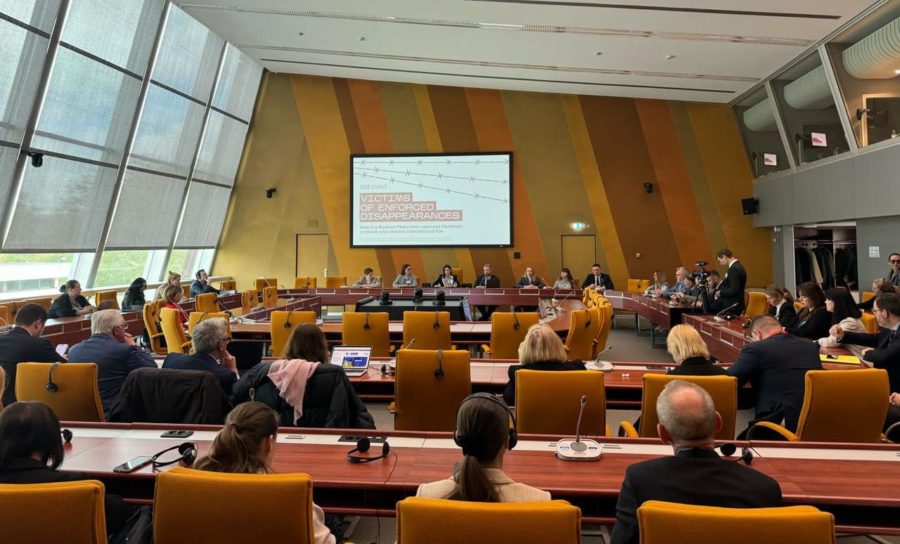 Photo credit: Alina Dmytrenko
Photo credit: Alina DmytrenkoOlena Khomenko, Vice-President of PACE and Member of the Ukrainian Delegation emphasized that Russia keeps holding thousands of Ukrainian civilians in detention without providing any information about them: “In fact, such civilians are currently in a complete legal vacuum. This practice leads to huge problems during their release, search or exchange procedures.”
Representative of the Ukrainian Parliamentary Commissioner for Human Rights Yuriy Kovbasa specified: “According to the Ministry of Internal Affairs of Ukraine, as of April 2024, more than 34,000 people have been listed in the Unified Register of Persons Missing under Special Circumstances. These are only verified data, and the actual figures are significantly higher. Among them, about 1,700 are civilians whose captivity status has been confirmed. Having in mind such frightening figures, we managed to return only 147 Ukrainian civilians.”
ZMINA’s Co-ordinator of the War Crimes Documentation Department Yelyzaveta Sokurenko stated that the persecution of the civilian population in the occupied regions of Ukraine is an element of the planned policy of the Russian Federation aimed at intimidation and establishing control: “The Russian military and special services deploy an extensive search for civilians, focusing on the list of specific markers. Those who are seen as a threat or perceived disloyal to the occupation are illegally detained and placed in detention facilities.”
She added that almost 90% of the people ZMINA interviewed were subjected to torture such as severe beatings and electric shocks in detention, which in some cases led to the death of detainees both as a result of torture and lack of medical services in captivity.
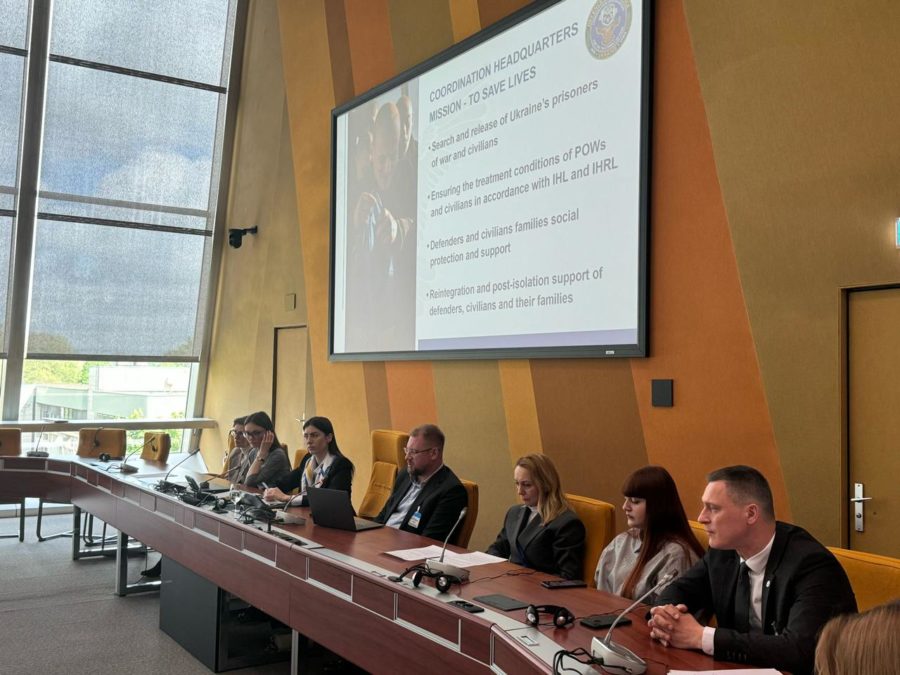 Photo credit: Alina Dmytrenko
Photo credit: Alina DmytrenkoOleg Gushchyn from the Coordination Headquarters for the Treatment of Prisoners of War told that civilians are held in the institutions of three federal agencies: Federal Penitentiary Service (prisons, penal colonies, penal settlements, pre-trial detention centres, correctional centres), Ministry of Internal Affairs (temporary detention centres for foreigners), and Ministry of Defense (guardhouses). In addition, civilians are illegally detained in unofficial places of detention such as basements and warehouses. Currently, there are 57 known places of forced detention where Ukrainian civilians are held.
“They are held in prison conditions, often incommunicado; suffer from oxygen deprivation, reduced immunity and concomitant diseases, such as tuberculosis. Due to the lack of sensory experiences, their mental state suffers. Criminal cases against them are completely falsified, the charges based on rather suspicious and sometimes “ridiculous” criminal articles, and there are no court decisions,” Gushchyn said.
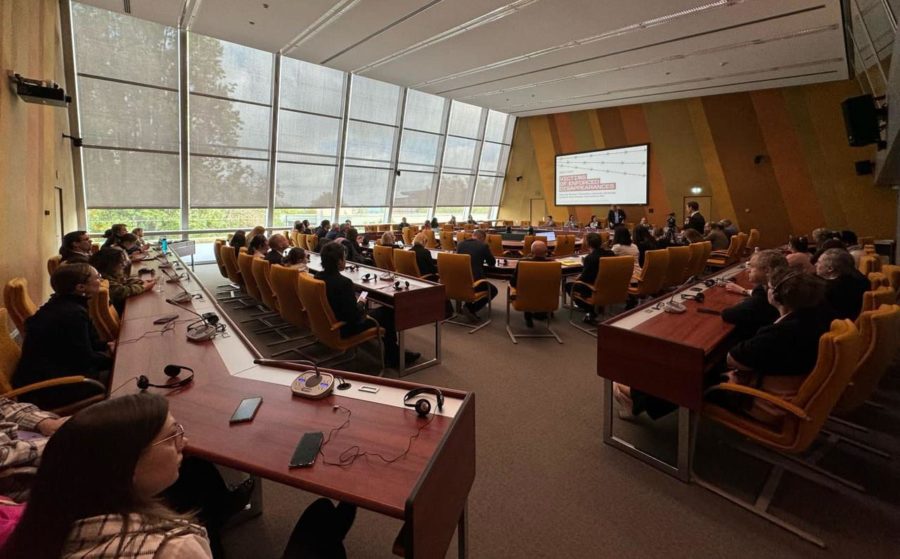 Photo credit: Alina Dmytrenko
Photo credit: Alina DmytrenkoTetiana Orlova, a civilian resident of the Kharkiv region, shared her story: “Because of our public stance, my husband and I were abducted from our home twice. The first time, my husband was kept in the basement for 19 days and I was kept for two days. Our passports were taken away and we were forbidden to leave. The second time, we were abducted from the house in about a month. We were taken to a small room, about 30 square meters, where we were kept together with other 30 civilians. The conditions in which we were kept were terrible. We were brought food once a day. There were sick people among us, but no one provided them with medical assistance. The next day after our abduction, my husband was taken for interrogation and I have never seen him again but I heard how during the interrogation he was tortured and he screamed in pain.” Tetiana had been held in detention for 15 days. Her husband was taken to the territory of the Russian Federation where he is until now.
Civilian citizen Luciena Zinovkina also told a story about her husband: “My husband Kostiantyn is 34 years old, he is an engineer and a talented dancer. He was in Melitopol. I spoke with him by phone on May 11, 2023, for the last time. On May 12, he was detained by the representatives of the Federal Security Service of Russia and taken to an unknown destination. For a long time, I did not know where my husband was, in what condition and whether he was alive. Half a year after his disappearance, Kostiantyn was shown on Russian television. He has lost weight and it was clear that he had been kept in terrible conditions, without access to a lawyer, to medical and humanitarian aid. He is accused of terrorism, Russia claims he wanted to blow up a person. Kostiantyn is being transported from a pretrial detention centre to a pretrial detention centre and I have been looking for his whereabouts for months.”
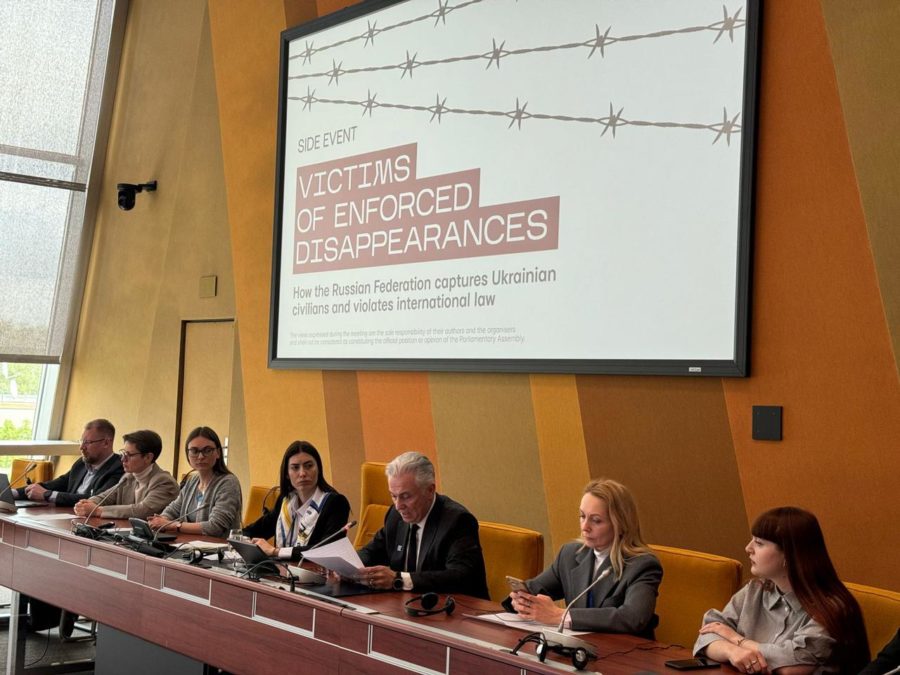 Photo credit: Alina Dmytrenko
Photo credit: Alina DmytrenkoPresident of PACE Theodoros Rousopoulos called the practice of enforced disappearances a business card of Russia and emphasized that it can constitute not only war crimes but also crimes against humanity. He noted that it is important to collect evidence and bring perpetrators to justice, as well as guarantee justice and support for victims. In addition, he emphasized the importance of Argentina’s investigation of the claim of torture by the Russian military against a citizen of Ukraine — this will be the first case about Russia’s war crimes in Ukraine under international jurisdiction, initiated outside Europe and the United States, and will help the already overburdened Ukrainian judicial system.
Moreover, panellists called for the establishment of a mechanism for the unconditional release of Ukrainian civilians. In particular, Oleg Gushchyn emphasized the need to create a system of interconnected measures of pressure on Russia in the form of a systemic strategy aimed at releasing all civilians without any exchanges or conditions: find all places and detention institutions of Ukrainian civilians deprived of their liberty; establish a register of civilians held in places of forced detention in the context of the conflict; intensify dialogue with partner countries to introduce a package of international targeted sanctions against Russian officials involved in enforced disappearances of Ukrainian civilians.
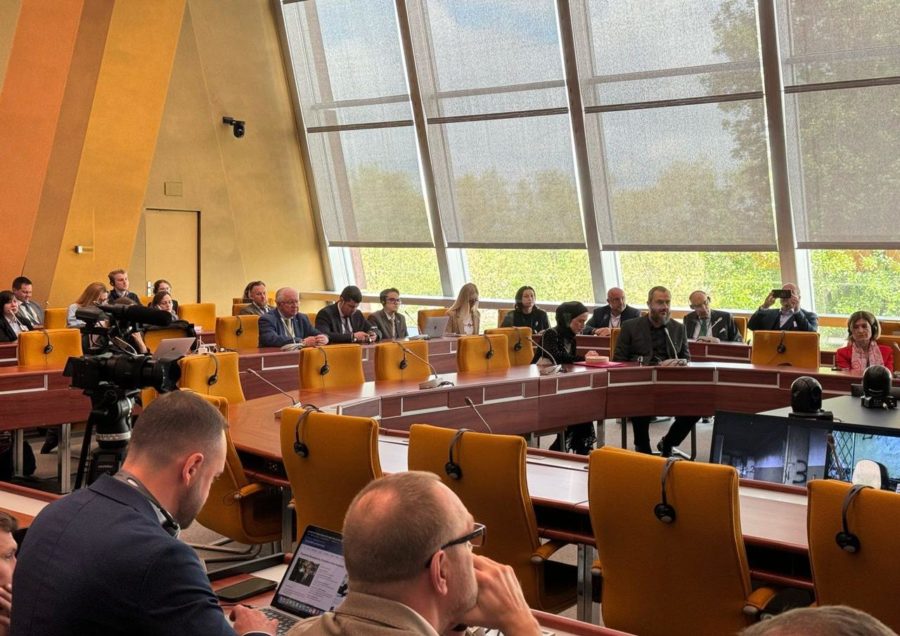 Photo credit: Alina Dmytrenko
Photo credit: Alina DmytrenkoYuriy Kovbasa said that the primary objective of international efforts should be the adoption and further implementation of a decision by the UN General Assembly to eliminate the Russian influence over UN Security Council resolutions. He also noted that there is an urgent need to find ways for the full implementation of the mandates of international organizations such as the ICRC and the Office of the UN High Commissioner for Human Rights, and to support the International Criminal Court’s activities.
Reference: The Parliamentary Assembly of the Council of Europe (PACE) is one of the two statutory bodies of the Council of Europe, to which parliamentarians are appointed by the national parliaments of the Assembly’s 47 member states. The Assembly addresses topical issues related to the problems of modern society and various aspects of international politics within the general mandate of the Council of Europe, which covers such areas as the protection of human rights, the development of democracy and the rule of law. The sessions of the PACE are divided into four part-sessions, each lasting for about a week in January, April, June and October.
If you have found a spelling error, please, notify us by selecting that text and pressing Ctrl+Enter.




